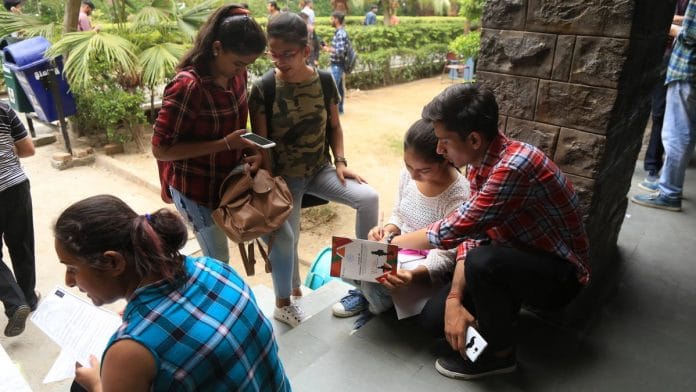The majority of the academic institutions in India affiliated with state universities (universities with local reach) face corruption in the recruitment of permanent faculty, hampering the quality of higher academic teaching and research. The applicants for faculty positions in such institutions are asked to pay a bribe, often of several lac Rupees ($40,000 to $50,000) for permanent faculty positions1.
This practice has proliferated as the management body of these colleges misuse the authority to hire faculty positions given to them by the University Grants Commission, Government of India (UGC, which coordinates, determine, and maintain the standards of higher education in India).
India produces around 24000 PhD graduates per year. These early career researchers have little chance of employment in central universities (with national reach) and deemed to be universities with transparent recruitment process which make up only 5.17% (54 in number) and 12% (126 in number) of the total universities in India (1043 in number)2.
There are a larger number of affiliated colleges of state universities sharing 43.14% (450 in number) and state private universities 39.21% (409 in number)2. In addition to the least number of central universities, more than 11000 faculty positions are vacant in higher educational institutes in India3. The scarcity of job opportunities leaves early career researchers vulnerable, with family responsibilities and professional instability. The management body of colleges affiliated with state universities tend to take advantage of the situation by demanding bribe from the applicants during the faculty recruitment process.
With few faculty level career options outside academia and fierce competition, the applicants have no alternative but to pay the bribe to achieve professional and personal stability.
Under such corrupt and unjust conditions, the students at these institutions lack role models and motivation and tend to follow the system continuing corruption. This situation dampens the research output which further hampers the prospects for future research funding at these institutions. For example, though, the number of state universities in India far exceeds the central universities, state universities and affiliated colleges receive very few grants (3.3%) by UGC as compared with central universities and affiliated colleges (81.66%)2. The overall effect of this situation is very low representation of state universities in NIRF ranking (National Institute Ranking Framework) by Ministry of Education, Government of India4.
Monetary exploitation of early career researchers and teachers in higher education institutions in India is fatal to the quality of education and research, and works against the aim of the current government to make India a ‘global knowledge superpower’. This corruption in state universities in India is a major hindrance in implementing the ‘National Education Policy, 2020’ by the current government aimed at revising and revamping all aspects of education structure and its regulation and governance in India. Corruption in higher teaching and research institutions also sabotages United Nations ‘Sustainable Development Goals’. Quality education and just and strong institutions are necessary for inclusive societies. Some possible measures to improve the situation might include a single national governing body for faculty recruitment in state universities and stringent anticorruption laws against corrupted institutions.
Acknowledgements – SK would like to acknowledge Dr Saskya van Nouhuys, Dr Praveen Karanth, and Dr Kartik Shanker, Centre for Ecological Sciences, Indian Institute of Science, Bangalore, India for helpful discussions.
References-
- Gupta, R. (2022). Assistant professors recruitment scam: How to stop it? Times of India, published October 12, 2022.
- University Grants Commission (2022). Annual Report University Grants Commission 2021-2022, Ministry of Education, Government of India.
- Business today (2022). Over 11,000 faculty positions vacant in central universities, IITs, IIMs: Govt, published on December 13, 2022.
- NIRF India Rankings (2022). National Institutional Ranking Framework. Department of Higher Education, Ministry of Education, Government of India.


